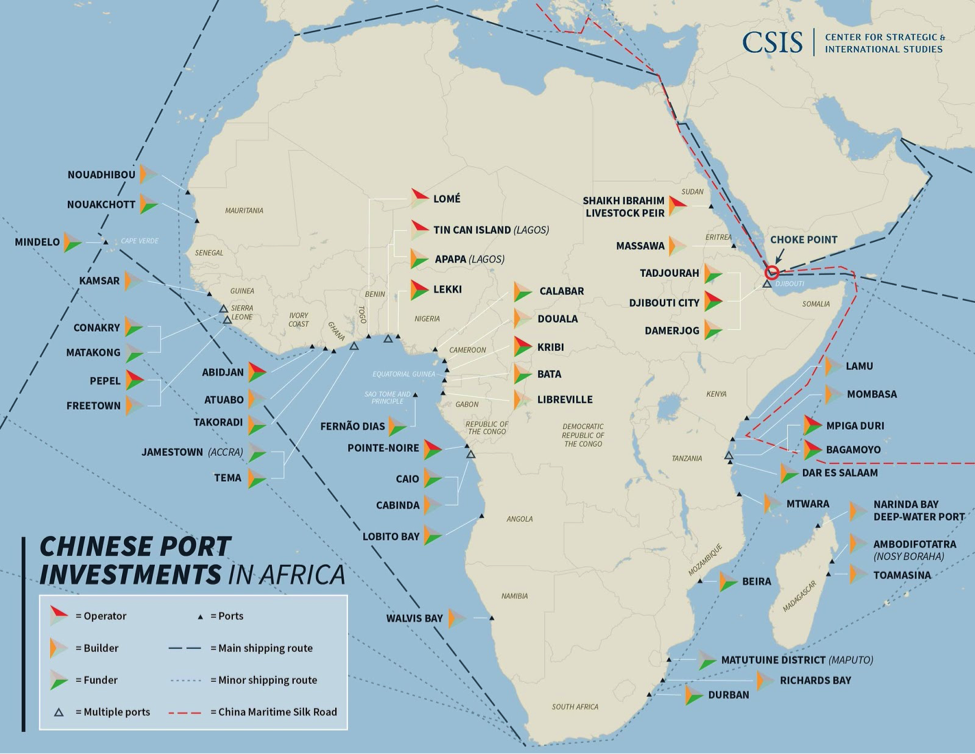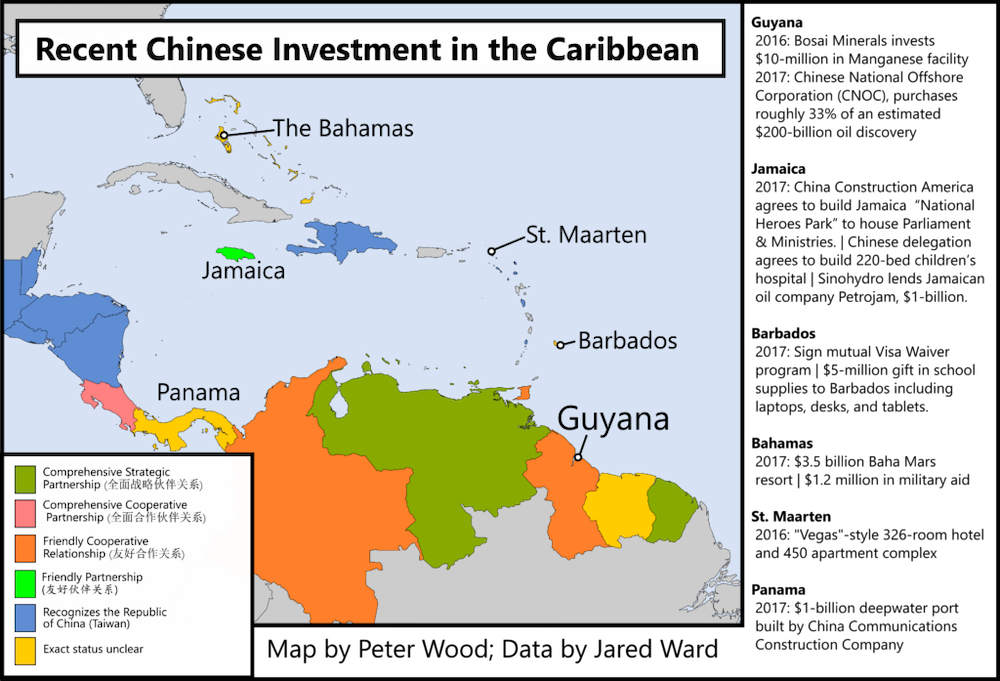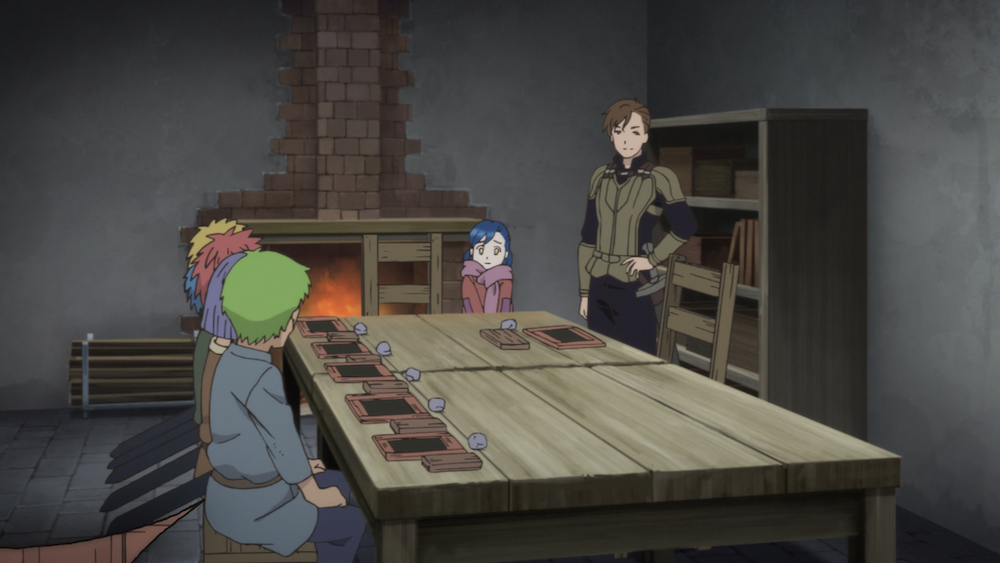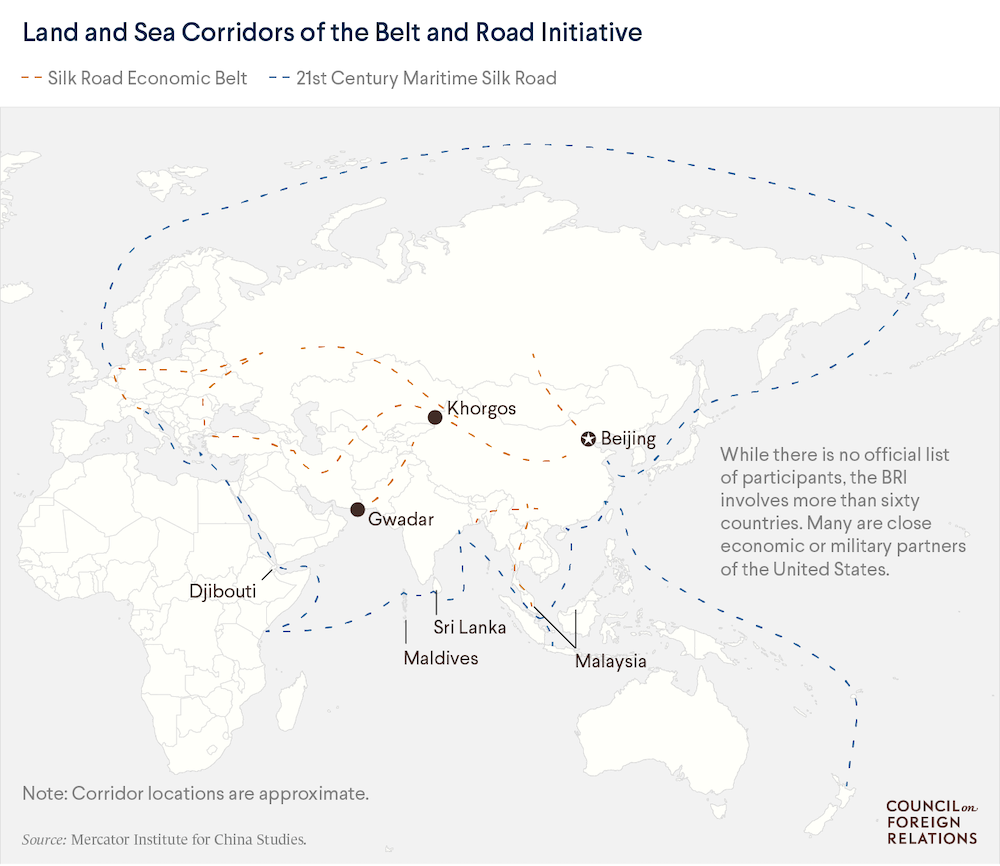October 31, 2019
The other image that comes to mind from those who have never read the originals is that as a barbarian, Conan is a simple brute. Again, not true. His Barbarian nature keeps his reasoning clear and unadorned with the gilding more civilized minds use to gloss over the cruder realities. Conan sees to the root of the matter, and cuts through the lies, sometimes literally...Read the whole thing.
Posted by: The Brickmuppet at
09:07 PM
| Comments (2)
| Add Comment
Post contains 84 words, total size 1 kb.
Happy Halloween
Posted by: The Brickmuppet at
08:45 PM
| Comments (2)
| Add Comment
Post contains 15 words, total size 1 kb.
October 30, 2019

Posted by: The Brickmuppet at
07:59 PM
| Comments (2)
| Add Comment
Post contains 27 words, total size 1 kb.
October 29, 2019
At 10:30 PM the log entry read...
"Talked to SRI, Host to Host.â€
And ARPANET, the first crude iteration of the internet was operational.
This has led to a myriad of advances, some amazingly good and some with terrifying implications.
However...
more...
Posted by: The Brickmuppet at
09:36 PM
| Comments (2)
| Add Comment
Post contains 238 words, total size 5 kb.
October 28, 2019
Posted by: The Brickmuppet at
10:06 PM
| No Comments
| Add Comment
Post contains 22 words, total size 1 kb.
Posted by: The Brickmuppet at
09:23 PM
| No Comments
| Add Comment
Post contains 4 words, total size 1 kb.
On the down side, one quarter of the earth's domestic pigs are dead and the plague that is killing them shows no indication of burning out.

Posted by: The Brickmuppet at
09:17 PM
| No Comments
| Add Comment
Post contains 62 words, total size 1 kb.
None of the six carriers in the Atlantic fleet are deploy-able, all being in dock.
Halloween is right around the corner.
With that in mind, I suggest that after reading this and the previous posts, you read this bit of historical fiction over at Cdr. Salamander.
Posted by: The Brickmuppet at
08:43 PM
| No Comments
| Add Comment
Post contains 71 words, total size 1 kb.
In the first half of the 15th century, the Chinese Admiral Zeng He led a series of expeditions as far afield as Africa. These expeditions reorganized the trade in the South Asian Maritime region and initiated what a Dr. Sen Tansen describes as an extensive state-directed commercial activity throughout the region. They had significant diplomatic impact as well as influence on the patterns and exchange of ideas. The state directing said activity was, of course, China. Today, as most regulars here are aware, there is a modern project, the Belt and Road Initiative that while outwardly quite different, is, nevertheless likely to have many effects. This endeavor has also elicited considerable concern in some quarters with regards to assumptions about China’s long term goals.
Let's look at the Ming treasure fleets...
Between 1405 and 1431 Chinese Admiral Zeng
He led 7 voyages to various areas of the Indian Ocean, Indonesian archipelago,
as far afield as the Red Sea Persian Gulf and as far south as equatorial Africa.
He was dispatched by the third Emperor of the Ming Dynasty (generally referred
to as the Yongle Emperor)These were not small
deployments. Records indicate that the first of these expeditions
consisted of more than 250 ships with a combined complement 27,000 personnel or
more.The purpose of these exceedingly expensive
deployments was multifaceted. They had their inspiration in the foreign policy
of the Yuan Dynasty, which sought to extract tribute from foreign countries. However, the Ming
treasure fleets were somewhat more subtle than their more modest antecedents.
While the huge fleet contained an impressive number of troops, they also
carried a surfeit of goodwill gifts for exchange as well as ambassadors,
consuls and merchants. This resulted in a
"carrot and stick†approach, with the huge size of the vessels as well as
"friendly†demonstrations of China’s advanced gunpowder weapons and the sheer size of the
ships themselves providing an intimidation factor that was effectively combined
with the gifts and exchange of pleasantries. Additionally, the sheer size of the fleet as well as its component ships
was not just intimidating to the locals, it was tantalizing to local leaders
and would-be leaders as the Chinese were seen as potentially valuable allies to
be competed for
In
addition, more kinetic operations were undertaken in which local pirates were
eradicated, countries eager to ally with China were supported in ways both
military and monetary, ethnic Chinese populations were recognized as ruling
polities, other citystates and small nations that were less enthusiastic about the Chinese presence were
"persuaded" (or nudged into the end of their histories) and, there were annexations
of strategic locations such as Malacca.
UPDATE: There is a good discussion of this process in a paper by Dr. Sen Tansen which I just belatedly realized is not link-able without a Research Gate account, but the abstract and application to download it can be found here. :END UPDATE
Now, in comparison to those endeavors of 600 years ago, the Chinese Belt and Road Initiative is as much involved with the construction of extensive transportation and communications infrastructure in central Asia as it is with maritime trade, however the two aspects are intended to be facets of a highly integrated transportation and communications network both maritime and overland.However, the whole affair has considerable similarities to the treasure fleets of old. The main difference is that, mercenary and indirect adventures aside such as those in Myanmar, there has been little in the way of outright military intervention thus far. There have, however, been analogies to the carrot / stick approach noted above.
A recent report for the Asian Maritime
Transparency Initiative discusses this.
From Malaysia to Maldives, China has sought to dominate critical infrastructure across sea lines of communications, gradually building a global network of access and dependencies, often at the expense of smaller nations’ sovereignty. Under this approach, Chinese companies—most of them state-affiliated if not state-owned enterprises—zero in on prized infrastructure projects in critical sectors like electricity, telecommunications, police surveillance projects, and, most recently, major port facilities.
The article also brings up two examples of note. China (or at least state-affiliated Chinese companies) recently began attempting to assume control of a Korean shipyard in the Philippines located in the former U.S. naval base at Subic Bay. This follows on the heels of the 2017 assumption by China of control of the Sri Lankan port of Hambantota. This latter affair is of particular interest and is one example cited by those alarmed about this endeavor. In short, as part of the Belt and Road Initiative, China has been liberally handing out loans to developing countries for infrastructure development. In the Sri Lankan case the construction was performed mainly by Chinese firms and when the loans came due and Sri Lanka was unable to pay, China took a majority stake in the port that they had built. It is unclear how the Subic Bay situation will play out, but this sort of thing is happening to a greater or lesser degree in a great many areas.
In the context of the Sri Lankan and Pakistani situations this raises the possibility of more ports being completely operated by China in the near to mid-term.
A similar
situation is developing on the subcontinent. For instance, Pakistan’s Gwadar port is part of a subset of the Belt and Road Initiative called the Chinese Pakistan
Economic Corridor.
This transnational entity deals with the integration of both the rail, road and
sea aspects of the Belt and Road Initiative as they relate to Pakistan
specifically.
Gwadar is a large container port in the province of Balochistan that
is being constructed virtually from scratch with considerable Chinese, financial, technical and military assistance. That
last type of help is not typically expected in a construction project but it
does highlight another similarity between the Chinese Treasure Fleet strategy
and this new endeavor. Balochistan is a rather restive region, ethically and
historically distinct from Pakistan until well after the end of the Raj, it has been the scene of considerable unrest in recent years and
due to concerns regarding the local militants, mercenary and PLA assets are being used to guard the P.E.C. facilities.
The $62 billion project will link Xinjiang Province of China with Gwadar
port on the Makran Coast west of Karachi. China is extremely concerned
about the safety and security of its workers engaged in construction
work in CPEC projects. Though Pakistan is raising a Special Security Division comprising approximately 15,000 personnel to provide security for the CPEC against terrorist attacks, the
experience of Chinese dam construction in Gilgit-Baltistan has shown
that eventually PLA soldiers are inducted for this purpose. The presence
of PLA personnel in Pakistan in large numbers will further vitiate the
security environment in South Asia.
"The Djiboutians are up to their neck in debt to China,†Reuben Brigety, former U.S. ambassador to the African Union told The Washington Post. Brigety said he expects this leverage to be used to force the Djiboutian government to hand control of the port to a Chinese company within the next six months. The Chinese will eventually use that enormously important strategic position to crowd out U.S. military operations,†Brigety said.â€
Naturally, the one example that is getting attention from the American Press, while developed similarly to the Chinese
establishment of Malacca, has established in a very different context which the Chinese can point to for propaganda purposes. For one
thing, China is joining other nations in the area as France, Italy, the United
States and even constitutionally constrained Japan have established naval bases
in Djibouti to monitor the confluence of trade routes, as well as act against
the endemic piracy of the region. China
is more dependent on the trade through this bottleneck than any of the other
countries listed except Japan, and the fact that legally pacifistic Japan has
an overseas military base in the same locale gives some measure of the
importance that the horn of Africa has for the PRC. This African facility is, therefore,
potentially less adventurous in scope than its Ming Dynasty predecessors and China will no doubt point to this when the alarm is raised. That THIS is the port that has gotten attention is somewhat infuriating.
However, the alarm noted by Ambassador Brigety above is not unique. This is especially true in the context of the Hambantota situation noted above. Recently the Center for strategic and International Studies did an assessment of ports in Africa and found that:
†There are at least 46 existing or planned port projects in sub-Saharan Africa, which are funded, built, and/or operated by Chinese entities. "
Read the whole thing but this one graphic (of several) is illustrative.

Several of these ports are fully operated while most of the rest were, or are being constructed by, Chinese firms with close ties to Beijing.
According to the article, currently, 11 of these 46 Chinese affiliated African ports are operated by the PRC! Usually this is done through PLA adjacent corporations. Do note that the division of responsibility between locals and the Chinese on many of these ports is subject to change as the Hambantota affair demonstrated.
The
capacities of Indian Ocean ports mentioned earlier are illustrative: Gwadar has
a channel depth of 18.5 meters Hambantota 17 meters, both have berths up to 600 meters long.
By contrast a Nimits class aircraft carrier is 333 meters long and draws 11.9 meters at full load in an undamaged state. The potential for accommodating the world’s
largest warships is at least theoretically impressive. given the speed with which China can throw together construction projects and the CCP's ability to persuade local governments via rickshaws full of cash, the potential for several of these ports to be developed into at austere but serviceable forward bases in a remarkably short time is a very real variable o be considered.
There is less information readily available about the inland nodes of the Belt and Road Initiative, along and parallel to the old Silk Road, but those, particularly the airports are likely to have similar contractual arrangements. Suddenly appearing PLAA aerodromes in sub-Sahara Africa or countries ending in "-stan" could be an unwelcome surprise for the US or other nations in the event of a crisis.
Nor are Africa and India the only location where this dynamic is playing out.
Several European ports are technically part of the Belt and Road initiative as they are the end points of the immense transport network being developed under it, and Chinese companies have been helping them modernize and improve infrastructure, with the result that Marsaxlokk(in Malta), Piraeus, Istanbul, Genoa, Marseille, Valencia, Bilbao, Nantes, Le Havre, Dunkirk, Bruges, Antwerp, and Rotterdam all have ports between 10 and 100 percent owned by COSCO, the Chinese state owned shipping concern.
While not,
strictly speaking, part of the Belt and Road project the Americas are getting
the same attention, particularly in the Caribbean where Chinese companies are building numerous port facilities and highways in
association with Chinese foreign aid.
China’s biggest and most visible projects in the Caribbean include the development of port facilities and highways.
In Jamaica, hundreds of Chinese workers have completed a $720 million four-lane highway stretching from north to south across the island.
Meanwhile, the China Harbour Engineering Company has agreed to build a deep-water port in Jamaica that will serve as a transshipment hub for giant Chinese container ships arriving through an expanded Panama Canal.
The small island nation of Dominica lacks a good natural harbor but its position at the juncture of the Leeward and Windward chains makes it a fairly strategic location. This is of particular interest now that the Chinese and Dominica have signed an agreement similar to the one initially signed between China and Sri Lanka.
"Dominica and China have signed a new 300 million dollars cooperation agreement that includes the construction of a hotel, construction of an international airport and building a new hospital. The sum involved is equivalent to a third of the small Caribbean island GDP, which could mean Beijing virtually is 'purchasing' the small territory.â€
The admittedly hyperbolic nature of the above quoted Radio Free Asia report does not help such matters get the consideration they perhaps deserve. Jamaica, The Bahamas, Panama, Venezuela, Trinidad&Tobago, Haiti, the Dominican Republic and Guiana are among the countries that have infrastructure projects along the lines of those mentioned above in Africa and South Asia.

On the Domestic U.S. front the Trump administration only last week managed to pry the former Long Beach naval shipyard out of Chinese control after it had ended up owned by COSCO, which is de-facto owned by the PLA. during the previous administration*. What information the PLA gained and what parting gifts might have been left behind in the form of discreet signals intelligence infrastructure is unclear but an interesting thought exercise for the reader.
Far beyond any use by naval assets, having
entities controlled by the PLA in charge of such ports might, in the event of a
crisis, present a thorny strategic problem to any number of countries via such mundane things as the passage of trade goods.
These worrying assessments all assume that China will have the desire and ability to cause mischief, and to be sure, there is an argument against the claims of imminent Chinese hegemony; one that has been noted that has only recently manifested itself. The amount of money going into the belt and road initiatives has, this year, started to dry up.
In the second half of 2018, the 10 nations of the Association of
Southeast Asian Nations (Asean) only recorded 12 China-funded
megaprojects with a total worth $3.9 billion, down from 33 projects
worth $22 billion from one year earlier.
This is a precipitous decline. Much of this is due to concerns of local polities about situations like that which befell Sri Lanka, but it is also may reflect a weakening of the Chinese economy.
Accurate info about the Chinese economy is
fiendishly hard to come by but if true this could represent another parallel
with the Ming Era Treasure Fleets of Admiral Zeng He.
Yes we're back to that.
Admiral Zeng He’s 7
voyages may have massively changed the trade patterns and economics of the
South Asian Maritime region, and was setting up area knowledge infrastructure
and diplomatic relations to facilitate a massive maritime trading empire. Then
the government of China became concerned with the expense and distracted by
other affairs. Given the expense of the Belt and Road Endeavor, aneconomic downturn would qualify as an affair that might distract the CCP, as
might domestic unrest such as is currently manifesting in Hong Kong.The fact that pork, the most consistent expression of the absolute baseline acceptable diet in China is about to become as rare as Waygu Steak does not bode well for China's domestic tranquility. The trade war with the U.S. is a further distraction; China having gotten used to the idea that the U.S. was always going to sit down and "take it" until it was too late.
The scale of the infrastructure projects that China has already completed will materially change commerce worldwide going forward just as the voyages of Zeng He forever altered trade and culture in southern Asia. If they continue the changes will indeed be profound, though that is as the saying goes "a very big ifâ€.
There are, of course, limits to parallels that can be made between Chinese policies 600 years ago and today's, but there are similarities and the main difference is in scale. The matter of where the situation will most profoundly diverge is the question.
In any
event, much rests on China’s intentions and the strength of their economy.
Going from 22 billion to 4 billion as noted above is such a dramatic re-alignment that
it smacks of desperation, and that is not necessarily cause for relief.
Many a despotic regime looking to distract from its domestic woes has
tried to do so via a short sharp war.
Note too though, that predictions of Chinese economic
collapse have been circulating in academia for over a decade now as have
predictions of their global omnipotence. Neither have come to pass, and indeed
few predictions made by experts in this field that passed peer review have
passed observation over time. China is a singularly difficult nation to analyze
for western experts as their cultural outlook is vastly different and even
those native to the culture of the oldest society on Earth, can be stymied in their
analysis as China’s actions are directed by conflicting forces. Legalism,
Confucianism, Communism, Realpolitik, International Relations, Game Theory, and the
hard to quantify concepts of honor which are, to varying degrees, philosophically at
odds with one another. This is all acted on through the cultural framework of
the Han and with information that outside observers are simply not privy to.
This is is not a formula for reliable analysis. It is, however, something that must be attempted given the potential and peril of the middle kingdom.
One final thing, scarcely worth mentioning;
This post has focused mainly on property and infrastructure acquisitions with an eye to physical logistics and their similarities to the methods used by the Middle Kingdom over half a millennium ago. Perhaps not enough attention is being paid in our think tanks to less kinetic influences such as the "rickshaws full of money" briefly mentioned above.
China
has corrupted and bribed a vast swath of our ruling class and their
control over our domestic speech and even financing is surprisingly profound.
Unlike us, the Chinese are not discarding the knowledge and wisdom of their ancestors. and count among their forbears a fellow named Tsun Tsu who literally wrote the book on war.
The first rule of which is win without fighting.
Discuss....
Posted by: The Brickmuppet at
04:47 PM
| Comments (2)
| Add Comment
Post contains 3168 words, total size 67 kb.
October 26, 2019
It's pointless filler that has nothing happen and sort of but not comprehensively re-caps the first three seasons.
Start with this season's episode 2 (#65). Because then you won't drop this series and thereby miss the next two episodes, which are really good.
Wow.
Posted by: The Brickmuppet at
11:18 AM
| No Comments
| Add Comment
Post contains 57 words, total size 1 kb.


I'm still quite enjoying this.
* NOTE: While her substitution of modern cooking techniques would no doubt create the pleasant contrast presented, those techniques are predicated upon clean running water and sanitary produce. I suspect that the wasteful tradition of throwing out the broth is rooted in hygiene and bad historical outcomes. Hopefully, those can be mitigated by thorough boiling.
Posted by: The Brickmuppet at
10:52 AM
| Comments (9)
| Add Comment
Post contains 225 words, total size 2 kb.
October 24, 2019
The internet is back up.
This was an issue earlier.
Anyway, how should we celebrate?
Well, it's getting close to Halloween and there's been a cheesecake deficit around here, so we'll kill two birds with one stone by posting a SUCCUBUS!

He can also be supported on Pixiv Fanbox.
Posted by: The Brickmuppet at
07:11 PM
| Comments (2)
| Add Comment
Post contains 78 words, total size 1 kb.
October 22, 2019

HAPPY INTERNATIONAL CAPSLOCK DAY.
Posted by: The Brickmuppet at
08:21 PM
| Comments (4)
| Add Comment
Post contains 65 words, total size 1 kb.
October 21, 2019

Alarmingly accurate in spirit representation of our comments section is by Garnet. Buy Garnet's stuff here or show support on Pixiv Fanbox!
Posted by: The Brickmuppet at
06:01 PM
| Comments (2)
| Add Comment
Post contains 31 words, total size 1 kb.
There are a lot of interesting and impressive items in this presentation, some of which impress on a more visceral level than a technical one.

Interestingly, while it has previously been sort of hinted at, Wooster here specifically states that the first manned rockets will be one way affairs.
Wooster also said the first spaceships will likely serve as homes for astronauts. This may not be the most comfortable setup, but it could reduce mission complexity and development by skipping the need to immediately build Mars habitats.
While the later vehicles are slated to make round trips and return, this confirmation presents in a fairly stark fashion that Musk and company are serious about a permanent human presence.
While that's fraught to be sure, few truly great things are done without risk.
The 21st century seems to finally be arriving.
Posted by: The Brickmuppet at
05:37 PM
| Comments (1)
| Add Comment
Post contains 185 words, total size 2 kb.
It appears to be a very low budget show animation and art wise, but the story of a librarian who finds herself stuck in a 5-year old body in a parallel world's dark ages remains quite engaging.

Our heroine is saddled with myriad obstacles (for one thing, she's stuck in a 5 year old's body) but she's really determined and I particularly like that not everything she tries works, more-so that she learns from her mistakes and tries different things.
This is actually better than I'd hoped. I initially thought she was a Renfaire enthusiast and/or had experience making paper for calligraphy, but no. It turns out that Urano/Main doesn't actually have any hands on or technical knowledge of what she's trying to do. However, she has some historical knowledge of vaguely how it happened in our world and given that she KNOWS it can be done, she's doing experiments to figure out for herself, how to make a book.
Posted by: The Brickmuppet at
05:02 PM
| Comments (3)
| Add Comment
Post contains 182 words, total size 2 kb.
However, if this post over at Claire Berlinski's place (via) is to be believed, then this is a major, major debacle that is indicative of the near collapse of the U.S.M. as a functioning country. According to Ms. Berlinski's correspondent, the battle involved...
0
...Heavy weaponry that would be familiar on any Iraqi, Syrian, or Yemeni battlefield was brought to bear. More and worse: custom-built armored vehicles, designed and built to make a Sahel-warfare technical look like an amateur’s weekend kit job, were rolled out for their combat debut. Most critically, all this hardware was manned by men with qualities the Mexican Army largely lacks: training, tactical proficiency, and motivation.
Then the coup de grace: as the Chapo sons’ forces engaged in direct combat with their own national military, kill squads went into action across Culiacán, slaughtering the families of soldiers engaged in the streets.
Emphasis is mine.
Mentioned later in the piece is the fact that the surrounded troops were ordered to surrender and turn over their quarry by the President of Mexico.
There has been a lot of ink and pixels spent on Mexico as a failed state, but if this report is true, then Mexico is heading for chaos like it hasn't seen since 1910-20. The Federales cannot control a state capital, the families of their troops cannot be protected, there are technicals running around with impunity and the president is literally surrendering to terrorists then this is it.
Mexico is falling apart.
Here's some footage from Mexico's Aztec News (without translation)...
...and there is a selection of footage here albeit from RT. Note that some of it is duplicated from above, but there's some that appears to be from the perspective of the Federales as well as the gangsters.
This is not an isolated incident. There are whole regions of Mexico that are not under the control of the government and when the police try to assert that control they are murderously rebuffed...
When a convoy of Michoacan state police did make a rare appearance in El Aguaje last Monday, they were ambushed and slaughtered by Jalisco cartel gunmen. Thirteen state police officers were shot or burned to death in their vehicles
This is a calamity of the first order and is especially of concern for the U.S.A. as we are the next country over and a inviting target not only for the waves of refugees, but the gangsters, paramilitaries and crime bosses fomenting the chaos.
And yet, aside from some local news outfits in border states...I'm hearing very little discussion of this dreadfully consequential development.
Posted by: The Brickmuppet at
03:55 PM
| Comments (3)
| Add Comment
Post contains 477 words, total size 5 kb.

Akagi and her sisters sallied forth expecting to spring a trap and oversee the killing blow against the U.S.N. and the capture of the most important pile of sand and albatross nests in the world. Instead, the loss of of this vessel and 5 others at the hands of a numerically inferior and diffidently equipped scratch force of U.S. Navy planes dumbfounded the Japanese and ended their rampage across the Pacific and Indian Oceans. Over the next three and a half years there would be more battles and the Japanese would even win a few, but this battle ended the Japanese forward momentum and the loss of so many aircrew was a blow from which Japan never really recovered.
Japan's hope for success in her folly ended with the death of Akagi and her sisters.
Kaga was found last week:
There is a very good overview of this battle from the perspective of the Japanese here.
Posted by: The Brickmuppet at
02:34 PM
| Comments (7)
| Add Comment
Post contains 207 words, total size 2 kb.
October 17, 2019
...circumstances...
...we will be laying low for a few days in a place far removed from the internet.
And laminate wood floor boards.
Posted by: The Brickmuppet at
11:58 AM
| Comments (2)
| Add Comment
Post contains 26 words, total size 1 kb.
October 16, 2019
They did get slightly more consistent in their totalitarian douchebaggery.
Originally Blizzard opted not to ban the players when they first held up the sign during the October 8th competition, but American University elected to resign from competition anyway to stand in solidarity with Chinese player, blitzchung, who had been banned from competition for saying "Liberate Hong Kong. Revolution of our times!†during a post-game interview.
Kudos to these American University students for pushing this. They gave up a fair amount of money by standing on principles. They also are grounded enough to note in their statement that they are in North America and Blitz Chung is in Hong Kong.
Chambers said the team wants to remind people that Blitzchung risked far more than he and his teammates did to make a point.
"He risked real things,†Chambers said. "We risked getting banned from a tournament structure we don’t intend to compete in anymore. He lost his permanent Grandmasters spot, which is a money printer. He risked getting arrested by security services in Hong Kong. He actually is the hero here."
Note Blizzard's official announcement and public explanation on the matter which, which consists of an anonymous tweet and a quiet banning.

But hey; Blizzard is courageously putting to rest the notion that American Media Companies are not just tolerating totalitarianism in overseas markets, they are helping to bring the censorship here.
Posted by: The Brickmuppet at
03:46 PM
| No Comments
| Add Comment
Post contains 242 words, total size 2 kb.
81 queries taking 0.1065 seconds, 454 records returned.
Powered by Minx 1.1.6c-pink.












